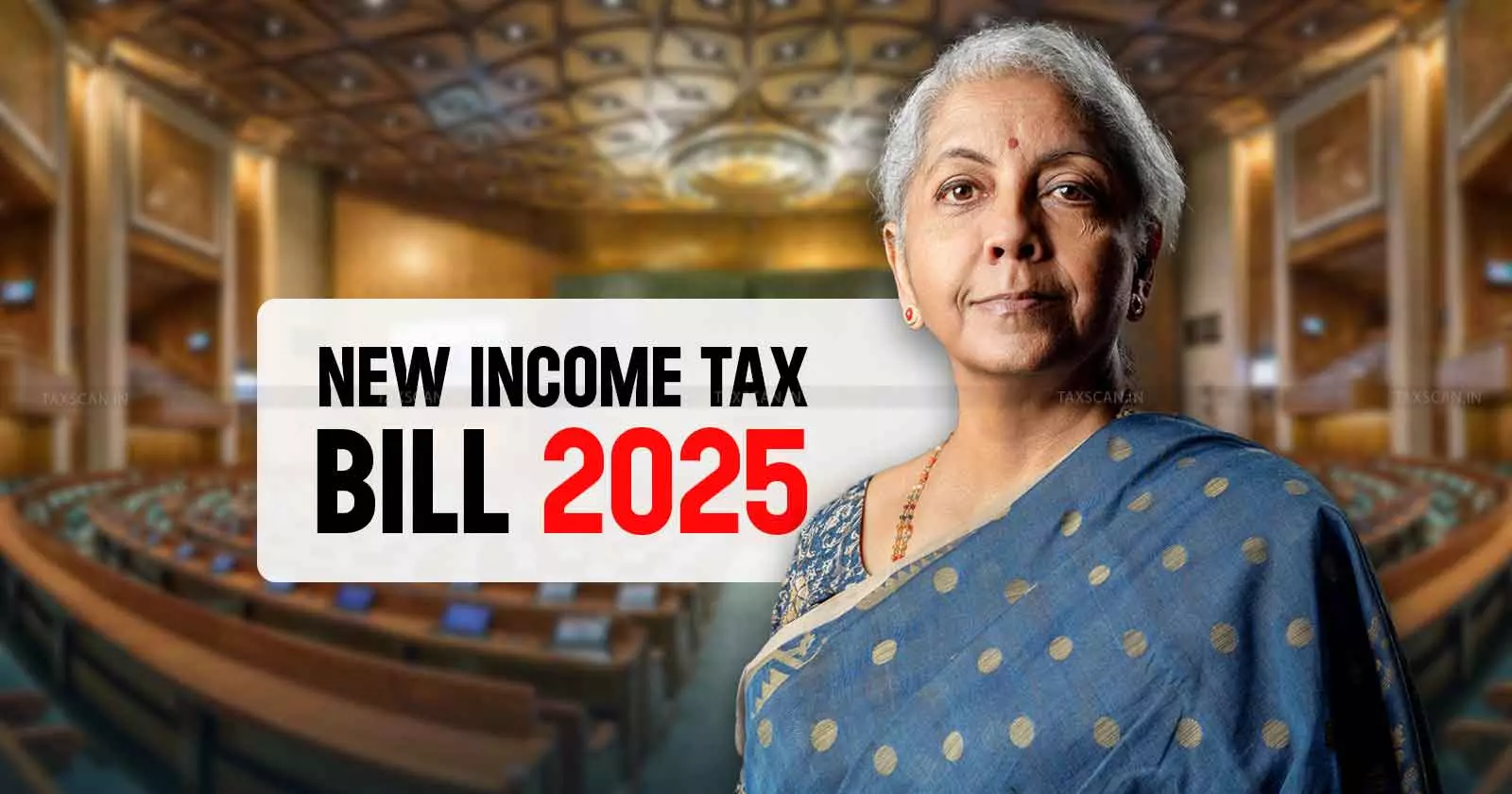Income Tax Bill 2025: New Changes Homeowners, Salaried People, Investors Should Know
The Income Tax Bill 2025 simplifies property valuations and extends full pension exemptions to all taxpayers

The Ministry of Finance under the Indian government has presented the revised Income Tax Bill 2025 in Parliament, replacing the earlier version that was withdrawn last week. Finance Minister Nirmala Sitharaman explained that the earlier draft was removed to avoid confusion and ensure that the language and intent of the law were accurate.
This new bill keeps many of the core reforms from the earlier draft but improves clarity and addresses concerns raised by the Parliamentary Select Committee. Here is a detailed look at the key changes for homeowners, salaried individuals, and investors.
1. Relief for Late Filing of Returns and Refund Claims
In the withdrawn bill, there was a restriction that could prevent taxpayers from claiming refunds if their returns were filed after the due date, even if the delay was for genuine reasons. That provision has now been removed in the passed bill. This means genuine reasons might be considered now.
2. Clearer Rules for Property Valuation and Taxation
Clause 20 - Income from house property
All income from buildings and land attached to them will be taxed under “Income from house property,” unless the property is used for the taxpayer’s own business or professional activity.
Clause 21 - Annual value
The annual value is the higher of actual rent received or the reasonable expected rent. This amount can be reduced by municipal taxes actually paid by the owner. Rent that cannot be collected is excluded. Self-occupied properties (up to two houses) and certain unsold properties can have an annual value of nil.
Stay Updated with the Latest Audit Report Formats & Audit Trials Requirements!, Click Here
Clause 22 - Deductions
A standard deduction of 30% is available after municipal taxes are deducted from annual value. Interest on borrowed capital for acquisition, construction, or repair is deductible, with pre-construction interest spread over five years. For self-occupied property, interest deduction is capped at Rs. 2,00,000 if certain conditions are met, or Rs. 30,000 in other cases.
3. Relief for Temporarily Unused Commercial Properties
Where a property is held as stock-in-trade and remains vacant, the annual value can be treated as nil for up to two years from the end of the financial year in which the construction completion certificate is obtained (Clause 21(5)). This helps businesses that keep commercial property vacant for renovations, seasonal operations, or other valid business reasons.
4. Pension and Retirement Benefits
Full exemption for commuted pensions:
Commuted pensions, which are lump sum amounts received instead of regular monthly pension payments, will now be fully exempt from income tax if they are from an approved superannuation fund or any other approved fund.
This benefit applies equally to government employees and non-employees, provided the pension is from a notified or approved scheme. This change removes the earlier difference in tax treatment between the two groups.
Unified Pension Scheme (UPS) and National Pension System (NPS)
The Bill introduces explicit provisions for the Unified Pension Scheme, granting full exemption on the commuted portion of pensions under the scheme. For NPS, the existing tax benefit continues up to 60 percent of the accumulated corpus can be withdrawn tax-free on closure or exit, as per current rules. These provisions aim to create parity in tax treatment across major pension schemes.
Retirement benefit accounts
A new framework for “retirement benefit accounts” will be introduced. These accounts, managed by approved funds, will allow tax-free withdrawals at retirement if specified conditions are met. This measure is aimed at encouraging structured and disciplined retirement savings.
Family pension
The Bill keeps the current family pension deduction unchanged. One-third of the pension amount or Rs. 15,000, whichever is lower, can be deducted from taxable income. This applies to pensions received by the spouse or dependents of a deceased employee.
Partial withdrawals
The Bill lays down rules for the taxation of partial withdrawals from pension schemes before maturity. This is meant to reduce disputes and provide clarity to taxpayers about the tax impact of early withdrawals.
Stay Updated with the Latest Audit Report Formats & Audit Trials Requirements!, Click Here
5. New Income Tax Slabs and Rebates
The revised bill retains the tax slabs announced in the Union Budget 2025 for individuals, Hindu Undivided Families, and other categories. The slabs under the new regime are:
- Up to Rs. 4,00,000: No tax
- Rs. 4,00,001 to Rs. 8,00,000: 5 percent
- Rs. 8,00,001 to Rs. 12,00,000: 10 percent
- Rs. 12,00,001 to Rs. 16,00,000: 15 percent
- Rs. 16,00,001 to Rs. 20,00,000: 20 percent
- Rs. 20,00,001 to Rs. 24,00,000: 25 percent
- Above Rs. 24,00,000: 30 percent
Rebate under Clause 156:
- For residents with total income up to Rs. 5 lakh, the rebate will be 100 percent of the income tax payable or Rs. 12,500, whichever is lower.
- Under the new regime, residents with incomes up to Rs. 12 lakh can claim a rebate of up to Rs. 60,000. For incomes above Rs. 12 lakh, the rebate amount will reduce gradually, capped at the tax payable.
These changes aim to provide higher relief to middle-income taxpayers while keeping the structure progressive.
6. Broader Impact for Investors
The bill retains the framework for taxing capital gains but aims to make the definitions and rules clearer. Provisions for taxing certain instruments, such as market-linked debentures, remain in place with clarified language to reduce disputes.
Investors in real estate benefit from the clarified property valuation rules, and retirement investors gain from consistent treatment of pensions and withdrawals.
Support our journalism by subscribing to Taxscan premium. Follow us on Telegram for quick updates


